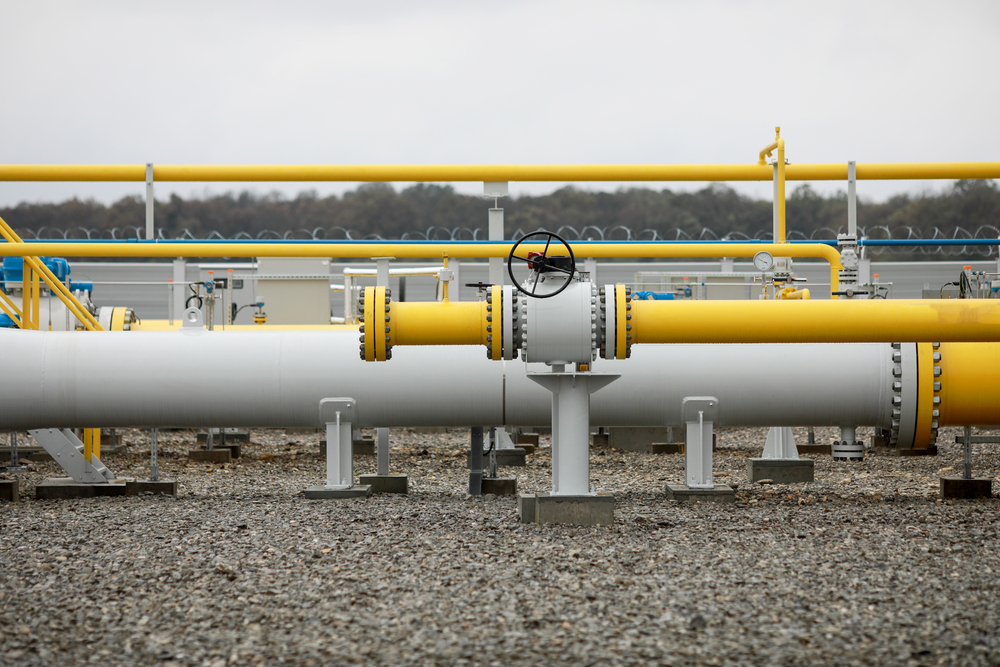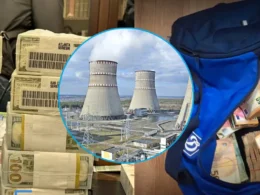The financial challenges Russia will encounter in 2023 are expected to be as significant as the profits it gained in 2022.
Last year, Russia’s pricing strategy for its global oil and gas customers specified that any reduction in the supply orders would result in higher product prices.
Consequently, Russia was able to achieve record profits despite the decrease in gas supplies to the EU. Despite providing only 100.9 billion cubic meters of gas in 2022 to the EU (compared to 185.1 billion cubic meters in 2021), the country still managed to earn twice as much money.
The Russian formula of "The smaller the volume, the higher the price" only worked until fall 2022. Prices began to drop when it became clear that EU countries could survive winter and find alternatives for Russian gas. Then, gas prices fell to $646 per thousand cubic meters, compared to the previous rate - $2155 per thousand cubic meters.
A similar trend was noticed in the oil market. And when Russia tried to apply its “the smaller the volume, the higher the price” policy in this case, it didn't work. Consequently, the Russian government has announced a reduction in oil production to 500,000 barrels per day starting in March. However, the market has hardly reacted to the statement.
Even if the formula impacts consumers, its effect will be much weaker this year than in 2021-2022. This means that the EU and G7 could continue to lower the price cap on Russian oil without fear of the shock in the market that arose at the beginning of last year.
Further lowering the price cap will be particularly painful for the Russian economy, and if the EU wants to end the war in Ukraine as soon as possible, the union must continue decreasing it.
In the fall of 2022, Russian officials claimed that sanctions did not affect the country's economy. Many European experts and journalists repeated this statement. Nevertheless, even then, indirect signs proved it wasn’t true.
For instance, in the fall, the Russian government required gas giant Gazprom to pay a monthly special tax of $5,4 bn to cover the growing deficit. The requirement was issued before the restrictions on oil came into effect.
After the price cap regulation came into force, the sanctions' impact became clear.
In January 2023, the deficit in Russia’s budget amounted to $25 billion, which was almost 60% of the annual budget deficit. Tax revenues from the oil and gas export fell by 46% compared to the same period in 2022. Additionally, expenses have significantly increased by almost 60%. Russia finances the war, which requires a lot of money.
It is worth emphasizing that Russia prepared its budget based on the assumption the oil price would be $70. However, in January, the price was approximately $50. Considering the results of the first month, declining oil prices, and the effects of sanctions on oil products, it becomes clear that Russia will finish 2023 with a substantial deficit despite the officials' expectations. Experts believe the gap will range from $70-80 bn.
Apparently, part of the Russian National Wealth Fund's liquid assets, often cited as an additional financial source, would be enough to cover the deficit. The fund, estimated at $155 billion, includes investments in securities and frozen assets.
The introduction of price caps on oil products from February 2023 will have an additional effect on Russia and make income to the budget even lower.
Yet, despite the decline in profit from oil and pipeline gas, Russia feels quite comfortable in the nuclear energy sector and liquefied natural gas supply (LNG).
Public data reveals that revenues from the sale of nuclear fuel and technology increased by 20% in 2022. Many EU countries, including Hungary, are confidently defending their right to cooperate with Russia in the nuclear sector.
Similarly, Russia’s LNG industry has seen a growth of 20% in its exports, with a substantial amount of its supplies distributed in the EU.
LNG frenzy boosts Russian gas in Europe, not energy security – opinion
There are still some sectors where Russia continues to generate revenues from trade with the EU, and future sanctions should also apply to these sectors.
Therefore, we expect that both LNG and nuclear will soon become sectors subject to EU sanctions.
The EU and G7 countries have the opportunity to help Ukraine to end the war this year. If energy sanctions are strengthened, Russia may run out of money by the end of 2023.
The article was prepared based on the 17 February 2023 speech delivered within the U4U initiative "EU sanctions on Russian fossil fuels: strengthening enforcement and closing loopholes" and as part of the project "Advocacy for the "green" restoration of Ukraine through increasing support for the country and weakening Russian influence in the EU," which DiXi Group carries out with the support of the International Renaissance Foundation.

Olena Pavlenko is head chief of the DiXi Group
Related:
- Are the sanctions on Russia working?
- What EU should do to track Russian assets and seize them for reconstruction of Ukraine
- LNG frenzy boosts Russian gas in Europe, not energy security – opinion
- Russia’s assets accumulation abroad hit records due to Europe’s delay with targeting Russia’s energy sector
- Nearly year after Ukraine invasion, only 17 of 122 top companies have exited Russia – watchdog





